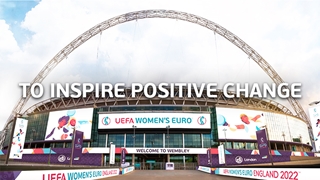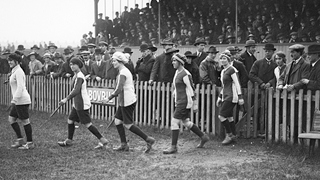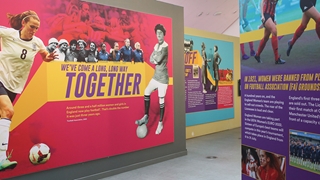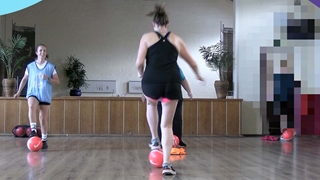
The UEFA Women’s EURO 2022 legacy programme is a first for both The FA and UEFA.
Through working with host city stakeholders we have created meaningful and measurable outcomes for how we hope to see the women’s and girls’ game develop in Sheffield, Rotherham, Manchester, Trafford, Wigan & Leigh, Milton Keynes, London, Southampton and Brighton & Hove.
Key partners from education, local government, professional and grassroots football plus local public and voluntary sectors, are working with The FA to bring all female football opportunities under one umbrella for the first time.
Each host city has a local legacy plan which sets out ambitions across participation, coaching and refereeing up until 2024.
Nadine Kessler, UEFA’s chief of women’s football, said: “This UEFA Women’s EURO 2022 will be groundbreaking from start to finish.
“The biggest women’s sports event in Europe will provide an unprecedented opportunity for us to inspire the next generation of players and fans.
“Our host cities, clubs and local authorities are up to the challenge of providing more opportunities for women and girls than ever before and knowing The FA’s long-term commitment to the women’s game, we have no doubt that together we will set a new European benchmark.”
Our three national host city goals are:
EQUAL access for all girls to play football in school and clubs
DIVERSE workforce of coaches, referees and local leaders delivering and organising football for their communities.
INCLUSIVE, safe and welcoming environments for every woman and girl to play competitive or recreational grassroots football, irrespective of ability, disability, age or ambition.
By providing more than 500,000 new football opportunities to engage women and girls across our UEFA Women’s EURO host cities, by 2024 we’ll see:
- 120,000 more girls regularly playing football in schools and clubs
- 300 new FA-qualified female coaches – that’s double the current number in our host cities
- 1,000 women and girls completing the entry-level FA Playmaker Award to make football happen
- 350 new FA-qualified female referees
- 20,000 more women playing football for fun, fitness and friendship
- 7,000 more women and girls regularly playing competitive football in grassroots clubs.








